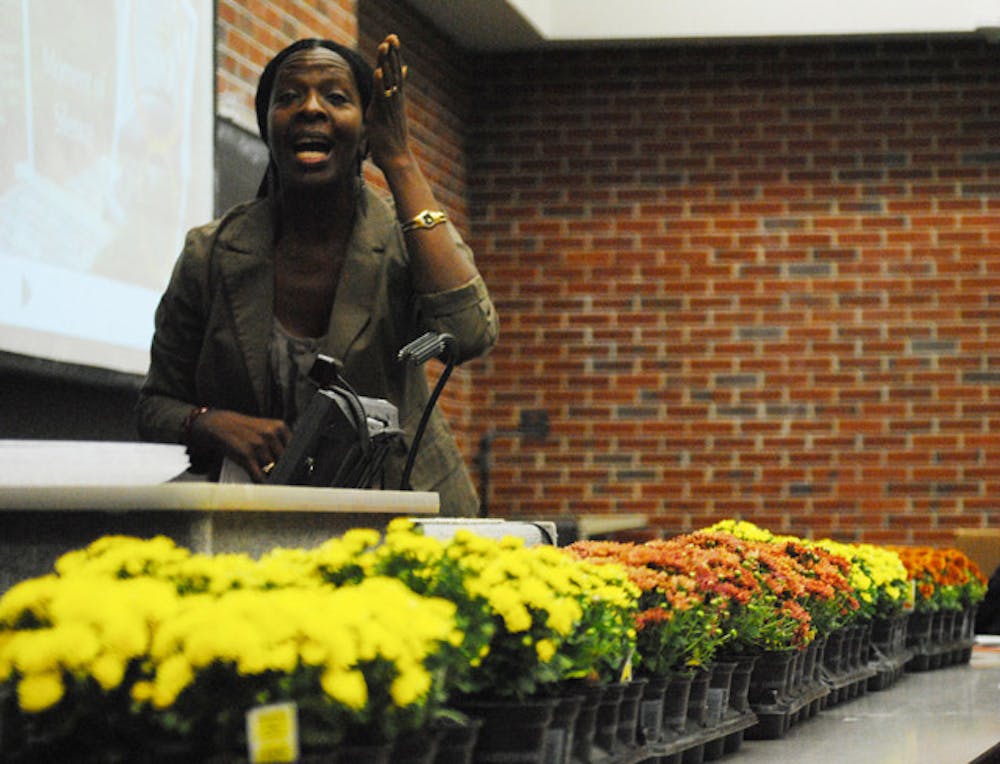There once was a hummingbird that lived in a forest. One day, a fire began to consume the forest. Powerless, all of the animals watched. Suddenly, the hummingbird appeared with a single drop of water from a nearby stream. It dropped the water onto the flames, repeating the action over and over again as fast as it could.
The other animals watched and told the hummingbird it was too small to make a difference.
The hummingbird turned to them and said, "I am doing the best I can."
About 70 people from the African Student Union gathered Friday evening at the Computer Sciences and Engineering Building to listen to Wangari Maathai's hummingbird story and to commemorate the life of the Nobel Peace Prize winner.
Maathai, who is considered the hummingbird of Kenya, died Sept. 25 at age 71. In 2004, she was the first African female to receive the Nobel Peace Prize, according to the Nobel Prize website.
Maathai had many accomplishments, said Nathan Wangusi, 28, a Ph.D. candidate in engineering.
She was remembered on Friday primarily as the founder of the Greenbelt Movement, an organization that established tree planting initiatives across Africa.
Agnes Leslie, senior lecturer and outreach director of the Center for African Studies, spoke at the meeting and urged students to start a movement after Maathai by digging a hole, planting a tree and doing the best they can.
At the meeting, 71 orange and yellow chrysanthemums, donated by David Clark of the UF Plant Innovation Program in the environmental horticulture department, were distributed to commemorate Maathai.
The group will meet in front of Grinter Hall at noon Oct. 21 to plant an oak tree to pay tribute to her.
"She was an ordinary woman who took seemingly insignificant actions and achieved extraordinary things," Wangusi said.
Agnes Leslie, outreach director of UF's Center for African Studies, speaks to members of the African Student Union on Friday about how to honor Wangari Maathai and carry on her legacy.






